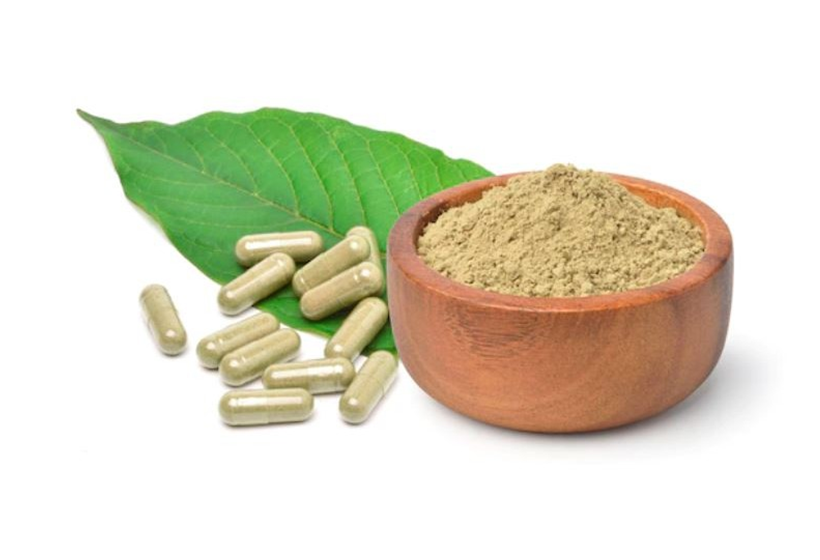Updates
Is Kratom Therapy A Solution You Need?
We all know someone who has struggled with addiction. The rise in opioid use and abuse has become an alarming global problem. Statistics show that drug overdose is now the leading cause of death among Americans younger than 50 years old. Expanding on earlier research, a recent study published by the American Society of Addiction Medicine found that Kratom use is a risk factor for opioid use disorder, but it does not appear to be a risk factor for other substance-use disorders like alcohol or cannabis use disorders. So what exactly is kratom? Is it safe to use as medicine? Are there any side effects? In this blog post, we’ll discuss everything you need to know about kratom therapy as well as its potential benefits and risks.
What Is Kratom?
Kratom is a tropical evergreen tree that is native to Southeast Asia. The leaves of this tree have long been used for medicinal and therapeutic purposes. Traditionally, kratom leaves were chewed or made into a tea. Today, kratom is primarily consumed as a powder or in capsule form. Kratom can produce both stimulant and opioid-like effects, but it isn’t a typical opioid narcotic. Kratom contains two primary active ingredients: mitragynine and 7-hydroxymitragynine. These alkaloids interact with the opioid receptors in the brain by binding to the mu receptors. The mu receptors are responsible for regulating pain perception and mood, as well as producing the feeling of euphoria.
How Does Kratom Therapy Work?
The opioid receptors in your brain are responsible for regulating pain, sleep, emotions, and more. These receptors can be activated by substances like kratom, as well as other prescription medications. Kratom activates these receptors, which is why many people use it as a natural alternative to opioids. It could potentially be used to help treat pain or anxiety, manage withdrawal symptoms, or help people transition off prescription medication. While kratom alone isn’t likely to cause any serious health issues, combining it with other substances could be dangerous. This is why people who use kratom should talk with a doctor before consuming it. A doctor can help you avoid any potential side effects by recommending the right dosage for your individual needs.
Is Kratom Safe?
This is a difficult question to answer because kratom is not approved by the FDA for any medical use. Additionally, it has been illegal in Thailand since 1943, and it is illegal in Australia, Malaysia, Myanmar, and several US states, including Alabama, Arkansas, Indiana, Tennessee, Vermont, and Wisconsin. This isn’t to say that kratom is unsafe; rather, it is an unregulated herbal product that may pose certain risks. For example, there have been reports of kratom being laced with toxic substances. Because kratom is sold unregulated, it can be hard to know what you’re purchasing. Kratom has certain side effects, including nausea, vomiting, itching, sweating, constipation, and urinary retention. There have been documented cases of serious side effects, including seizures, liver damage, and even death.
Why People Use Kratom For Opioid Addiction?
Kratom has been used for years to help people kick opioid addiction. However, it is hard to know whether it actually works because it is not regulated. There is also very little scientific evidence on the efficacy of kratom for opioid withdrawal. The alkaloids in kratom bind to the opioid receptors in your brain to block the effect of opioids. The hope is that by taking kratom, you would feel less cravings for opioids and would be able to withdraw from them more easily.
Pros of Using Kratom For Opioid Addiction Recovery
- *You can avoid a painful detox
- *The process of detoxing from opioids can be painful and potentially dangerous. Kratom could help ease your withdrawal symptoms, which could make the process less
- *You can avoid painful side effects of opioid withdrawal
- *One of the most common side effects of opioid withdrawal is Opioids are known to cause severe long-term pain, but they can also ease the pain of withdrawal. Kratom could help you avoid opioids because it is not a regulated substance that may cause long-term side effects.
- *You can reduce or avoid taking methadone
- *People who are struggling with withdrawal are often put on While it does ease withdrawal symptoms, it is often a long-term solution. Kratom could help you avoid taking methadone by easing your withdrawal symptoms.
Cons of Using Kratom For Opioid Addiction Recovery
- *It doesn’t always work – Kratom does not always work for managing withdrawal Some studies even suggest that it may make some withdrawal symptoms worse.
- *You may become addicted – Kratom is addictive and can be habit-forming. This doesn’t mean that everyone who uses kratom will become addicted, but it is something to keep in mind.
- *You can’t predict how it will affect you – Kratom comes in a wide variety of strains and You can’t predict how it will affect you because there is no regulation of kratom products.
- *You would need to take it for the rest of your life – You would need to take kratom for the rest of your life in order to manage your withdrawal symptoms. This is not a sustainable long-term
Final Words
Overall, we don’t know how effective kratom is for helping people with opioid addiction. There have been some studies to explore this potential benefit, but they have been limited. There is also a risk of addiction associated with kratom, and it doesn’t come with the same safeguards as other medications. There are also other ways to deal with withdrawal symptoms, including therapy and supplements such as CBD oil. We only recommend using kratom to treat opioid addiction when it is supervised by a doctor. To learn more, please visit EastWestHerbal.com


















